Rpigat 2.5 Mg
$25.00 – $45.00
Rpigat 2.5mg Tablet is a medicine which is used to prevent blood clotting or known as anti-coagulant or antiplatelet. It is used to prevent and treat blood clots.

NHS AFFILIATED DOCTORS

FDA APPROVED PHARMACY

AFFORDABLE PRICE GURANTEE

FAST & TRUSTED DELIVERY
Rpigat 2.5 mg contains Rivaroxaban (2.5mg), an oral anticoagulant (blood thinner) used to prevent blood clots, strokes, and deep vein thrombosis (DVT). It works by blocking Factor Xa, a key enzyme in blood clot formation, ensuring smoother blood flow and reducing clot risks.
Active Ingredient:
- Rivaroxaban 2.5mg – A direct Factor Xa inhibitor that prevents blood clot formation.
Indications:
- Prevention of Stroke & Blood Clots – In patients with atrial fibrillation (irregular heartbeat).
- Prevention of Deep Vein Thrombosis (DVT) – Used after hip or knee surgery.
- Prevention of Pulmonary Embolism (PE) – Reduces the risk of life-threatening lung clots.
- Heart Attack & Cardiovascular Risk Reduction – Used in patients with coronary artery disease (CAD) or peripheral artery disease (PAD).
Key Features:
- Effective Blood Thinner – Reduces stroke and clot risks.
- No Need for Frequent Monitoring – Unlike warfarin, no routine INR testing required.
- Fast-Acting – Starts working within a few hours of intake.
- Convenient Oral Tablet – No injections required.
- Lower Bleeding Risk – Compared to traditional anticoagulants.
How to Use
Administration:
- Take one tablet (2.5mg) twice daily, as prescribed by your doctor.
- Swallow whole with water, with or without food.
- Do not crush or split the tablet.
Dosage:
- Stroke Prevention (Atrial Fibrillation): 2.5 mg twice daily.
- Post-Surgery DVT/PE Prevention: 2.5 mg twice daily for up to 35 days (depending on surgery type).
- Heart Attack & Cardiovascular Risk Reduction: 2.5mg twice daily, usually with aspirin.
Precautions
- Bleeding Risk – Avoid if you have active bleeding disorders.
- Kidney & Liver Disease – Dose adjustments may be needed.
- Avoid Stopping Suddenly – Can increase clot risk.
- Surgery Precaution – Inform your doctor before any surgery/dental procedures.
- Pregnancy & Breastfeeding – Use only if prescribed by a doctor.
Side Effects
Common Side Effects:
- Minor nosebleeds or gum bleeding
- Headache or dizziness
- Mild stomach discomfort
- Bruising easily
Serious Side Effects (Rare):
- Uncontrolled bleeding – Blood in urine/stool, prolonged bleeding
- Severe allergic reactions – Swelling, difficulty breathing
- Liver issues – Yellowing of skin/eyes (jaundice)
FAQ
-
How long does Rpigat 2.5 mg take to work?
- Starts working within 3-4 hours of intake.
-
Can Rpigat 2.5 mg be taken with food?
- Yes, it can be taken with or without food.
-
Do I need regular blood tests while taking Rpigat?
- No, unlike warfarin, routine INR monitoring is not required.
-
Can I stop taking Rpigat suddenly?
- No, stopping suddenly increases clot risk. Always consult your doctor before discontinuation.
-
What should I do if I miss a dose?
- Take it as soon as you remember, but do not double dose.
| Pack Size | 60 Tablet/s, 120 Tablet/s |
|---|
Be the first to review “Rpigat 2.5 Mg” Cancel reply
Related products
Heart & Blood Pressure
Heart & Blood Pressure
Heart & Blood Pressure
Heart & Blood Pressure
Heart & Blood Pressure
Heart & Blood Pressure
Heart & Blood Pressure
Heart & Blood Pressure


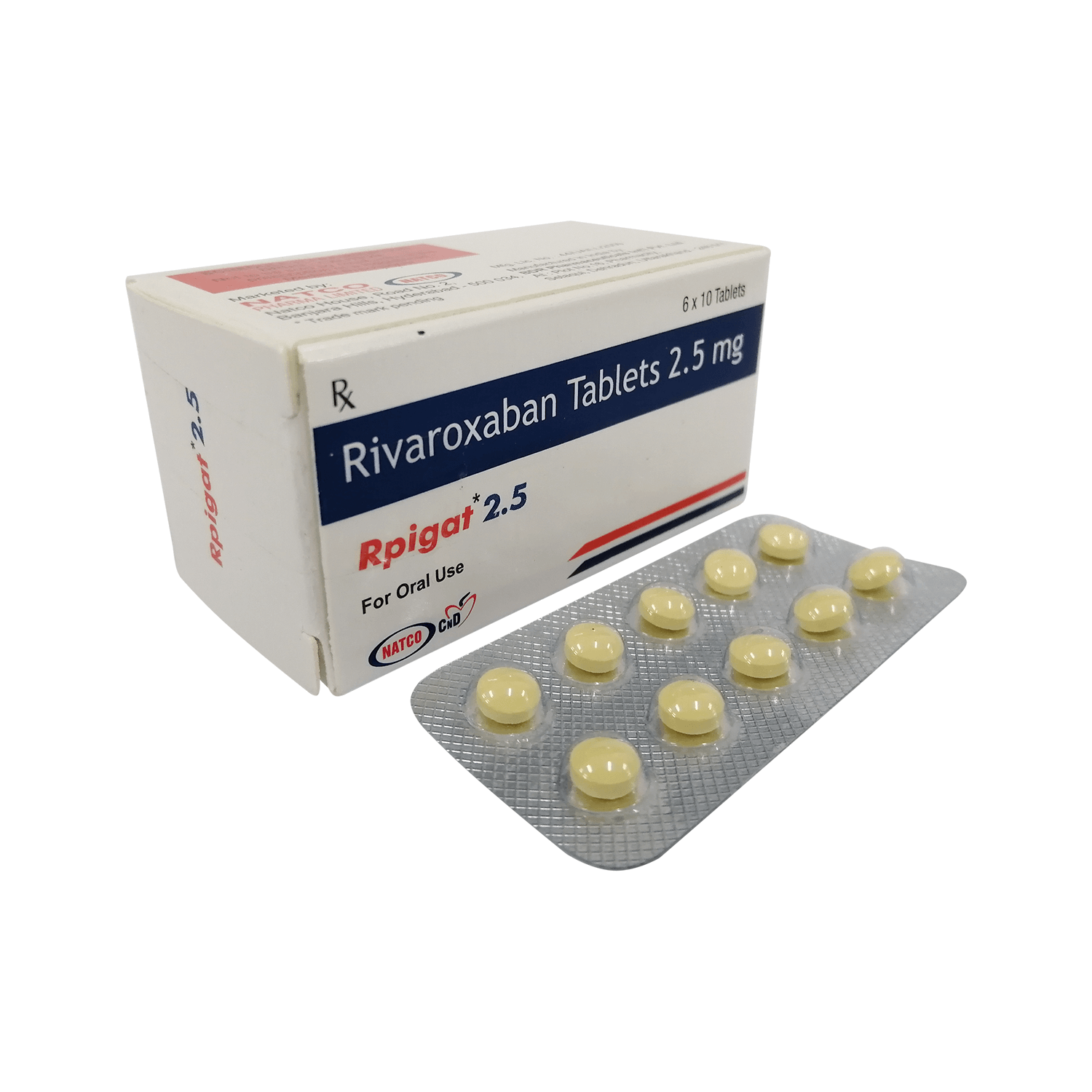
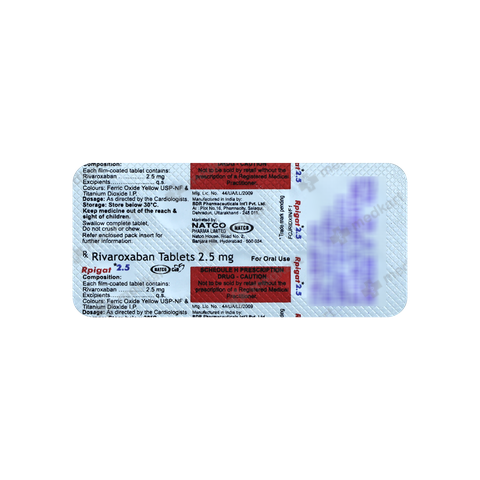

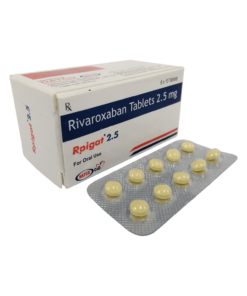
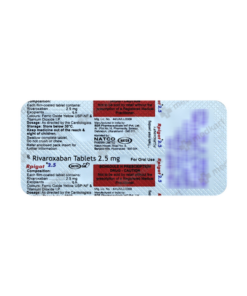
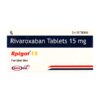
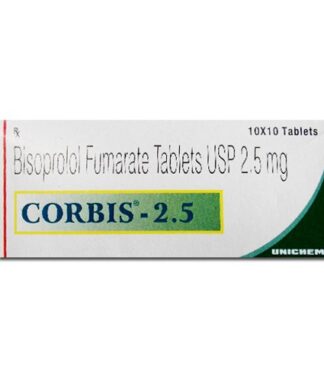
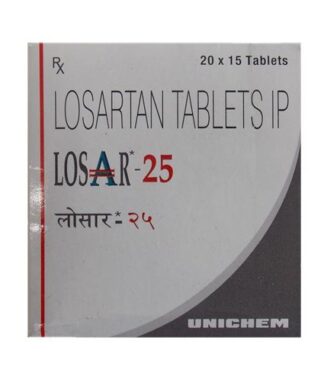
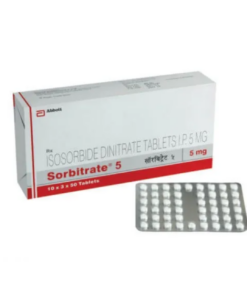
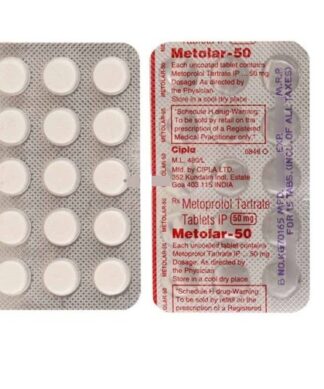
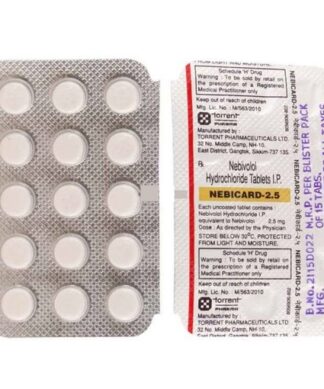

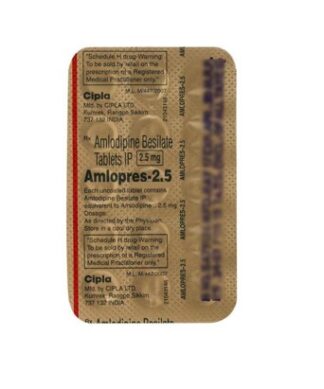

Reviews
There are no reviews yet.